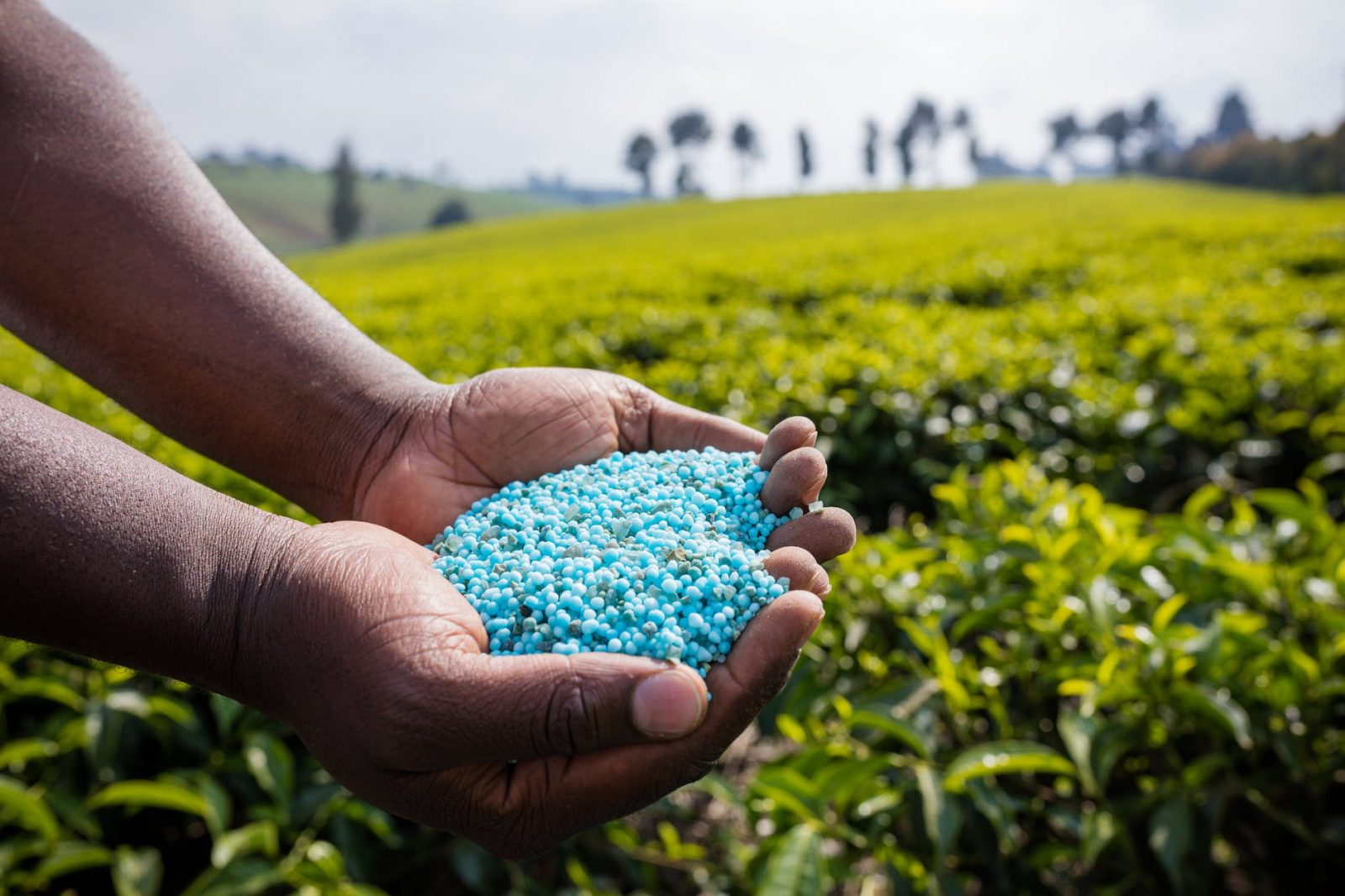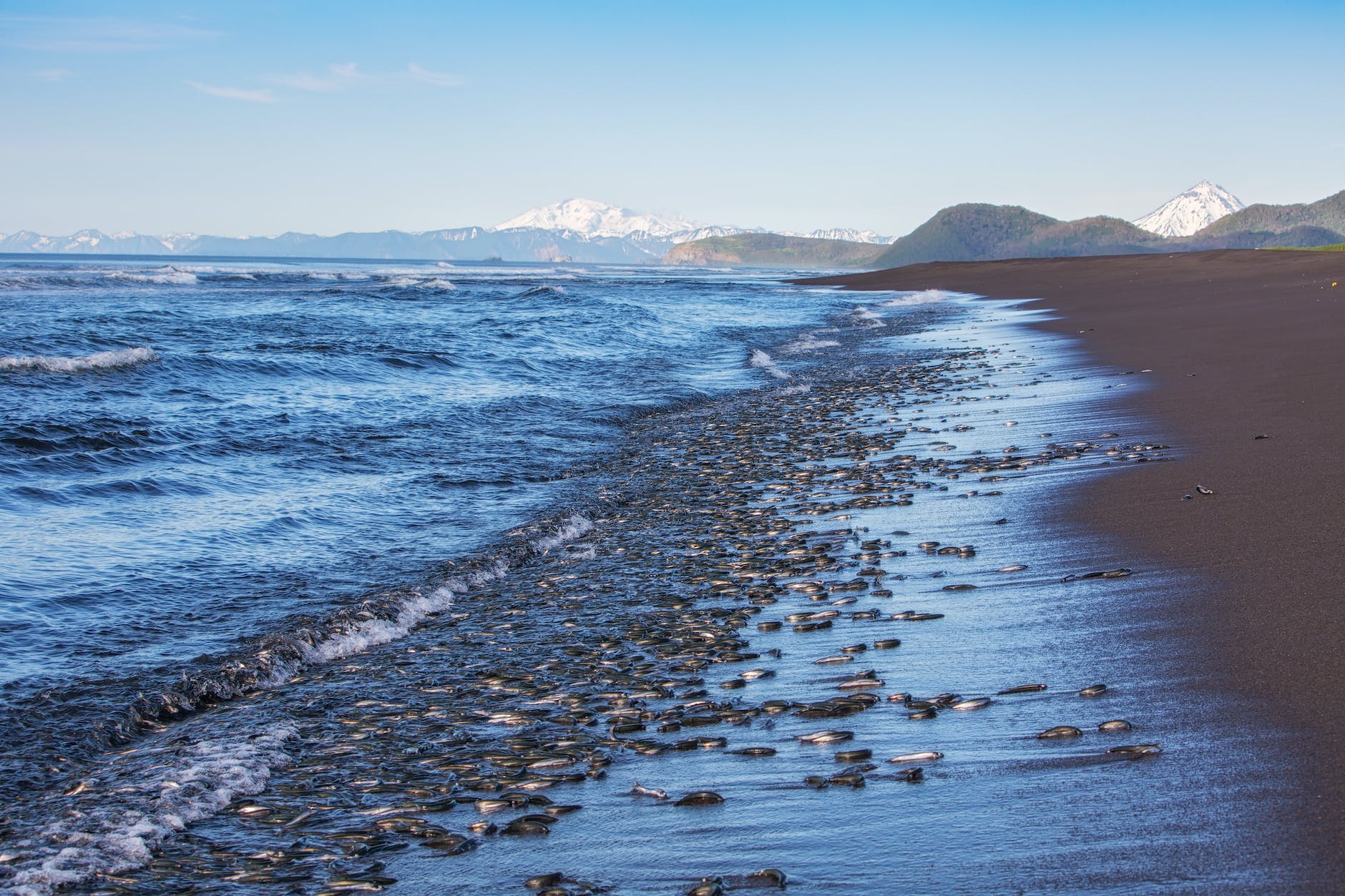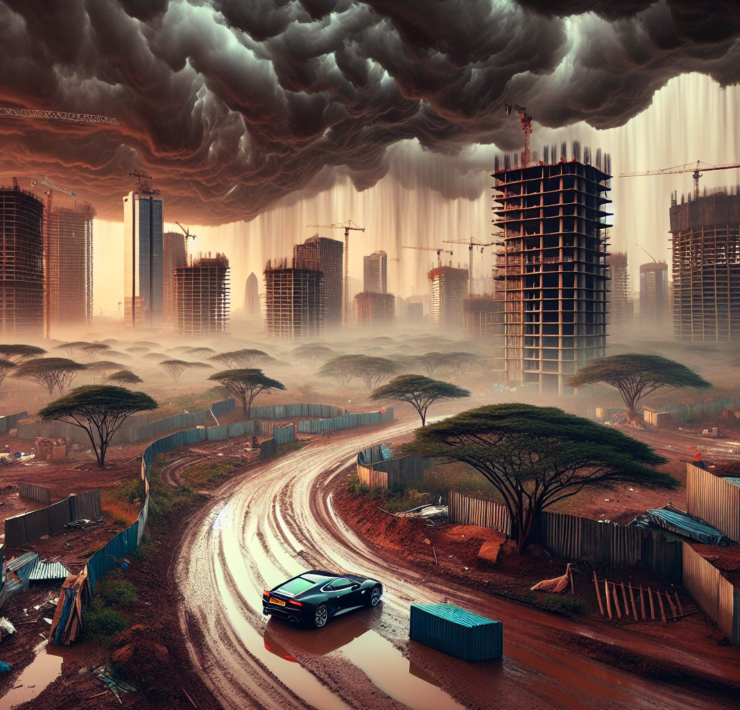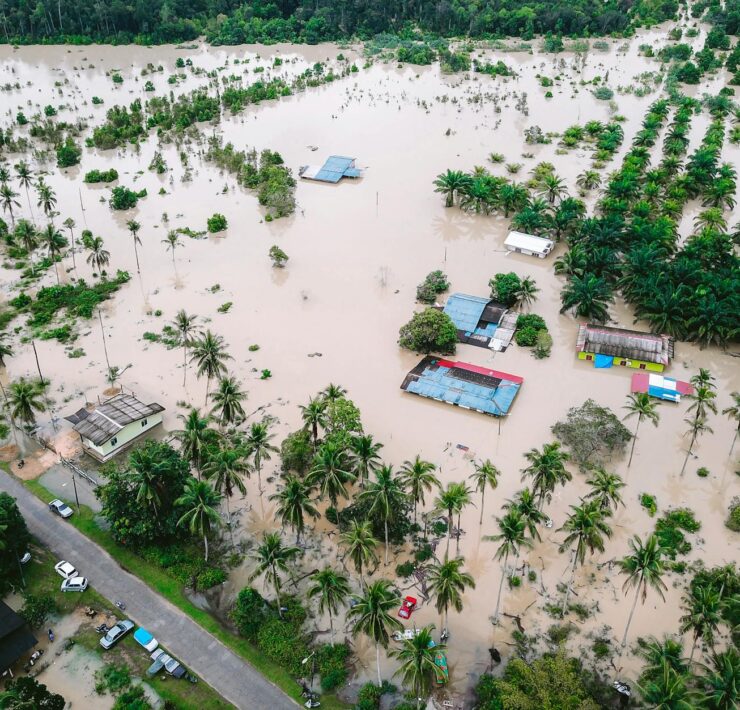The Dangerous Effects of Chemical Fertilizers

Samuel Phillips is a writer, graphic designer, photographer, songwriter, singer…
There’s been a whole lot of talks about climate change, and the unfavorable weather patterns that are causing low yields among farmers, especially in relation to rainfall. And these issues are not just among local farmers in Afrika, but globally. And one of the narratives that keeps popping up each time these stories are told is that farmers should be given greater access to farm tools to help mitigate the failing agricultural systems. But really, I personally think that most of the talk about farm tools really means giving farmers more access to fertilizers. In fact, it’s one of the trending stories right now in Kenya where the new administration of President William Ruto recently flagged off the distribution of fertilizers to various parts of the country. It’s a good thing that the new administration, as per its manifesto, has started the initiative to help local farmers, but I am very sure those fertilizers are not organic but chemical fertilizers. And therein lies my worry.
Life and everything about life is always two-way; that which we see, or which comes in the short term and that which we do not see, or which comes in the long term. And within the context of the use of chemical fertilizers for more crop yields and faster growth, there is also the dangerous fallout from the consistent use of these chemical fertilizers that we are either not paying attention to, or we are just too crop-yield and profit-oriented that we don’t care about the long-term dangers of the use of chemical fertilizers.
Given that chemical fertilizers have aided farmers in increasing crop production since the 1930’s, let me ask, at what cost is this supposed increase in production? Cancer, broken ecosystems, or the other things we don’t talk about? And while chemical fertilizers have their place in increasing plant nutrients in adverse weather conditions or during times when plants need additional nutrients, there are also several harmful effects of chemical fertilizers. And these harmful effects, are what we must not take with kid’s gloves.
Generally speaking, the purpose of any fertilizer, both organic and inorganic is to increase the quantity of nutrients in the soil which makes it more fertile and friendly to plant growth. Typically present in fertilizers are one or more of the macronutrients nitrogen, phosphorus, and potassium, or NPK. Any one of these is pretty much all a plant needs to grow, and grow fast. Other nutrients may also be present, depending on the source.

I am pretty sure there are those who will not waste time telling me off, since this article seems to be against their very revered fertilizer, but should we by now not have connected the rise in all manner of diseases, sicknesses, environmental degradation, etc. to some of our dangerous farming practices? Wisdom should have helped us understand that by now.
I recently started to really look at the issue of chemical fertilizers; the advantages but mostly the disadvantage and came to the conclusion that we humans are definitely the cause of our social and health problems. And I am forced to ask myself these questions:
If the use of chemical fertilizers causes:
- Waterway pollution
- Increased air pollution
- Chemical burns to crops
- Acidification of the soil
- Danger to human and animal health
- Mineral depletion of the soil
- Less nutrients in crops and thus fewer nutrients to humans…why then are we so bent on using these chemicals for our farming and food needs?
Let’s break down each one of the lists of harmful effects of chemical fertilizers and then see if maybe we have been putting profit over people while we turn around to complain about climate change and the other nonsense we like to debate about at the AU or the UN summits.
Waterway Pollution
One of the problems with chemical fertilizers is, they seep through the soil into the groundwater and other water sources, leading to contamination. Now, NPK in small quantities is non-toxic, but a lot can kill the balance of nature in various ways. One way this happens is by doing exactly what it is supposed to do, which is to help plants grow. The problem is that it creates what experts call a dead zone.
Since too much of anything is harmful to both humans and nature, the overabundance of nutrients in the water reduces the amount of oxygen. The existing organisms living in the water use up the oxygen that is left. The result is oxygen depletion causing the death of fish in the rivers. And this trend of the killing of fish due to excessive runoff chemicals can only create more imbalances in nature and thus more problems like climate change. How this happens is that, when these chemical runoffs get in the water, it encourages the growth of plankton and other aquatic plants to excessive amounts. When they die, the process of decomposition eats up oxygen that fish and other aquatic animals need to survive. As a result, the waters closest to the land where agricultural runoff is also heaviest are empty of fish and crustaceans. And that is definitely an imbalance of the ecosystem.
Increased air pollution
We cannot close our eyes and hearts to the fact that everything on earth is connected in ways we might not have even cared to understand. Meaning that the crop yield that was created using chemical fertilizers and which we seem to praise and even want more of is directly or indirectly connected to the change in atmospheric health due to air pollution and which in turn creates warming of the earth’s surface and thus climate change.
Excess nitrogen used in crop fertilization can contribute to the release of greenhouse gases such as carbon dioxide and nitrous oxide into the atmosphere. This effect is caused by using a greater amount of chemical fertilizer than the plants can readily absorb. According to the National Oceanic and Atmospheric Administration (NOAA) Climate Monitoring and Diagnostics Lab, excess greenhouse gases trapped in the atmosphere may be contributing to the increase of land and ocean surface temperatures. (Hunker.com)
The problem with nitrogen which is one of the main components of chemical fertilizers is that it contributes to the greenhouse effect or what is also called “other greenhouse gas”. Nitrogen is just as bad as carbon dioxide in global warming but is not as famous. The main sources of nitrogen in the atmosphere in the form of nitrous oxide are power plants and cars, but using more nitrogen fertilizers than crop plants can absorb plays a significant role in the increase of air pollution.
Chemical burns to crops
I do not think this one needs too much explanation. For as too much exposure of humans to harmful chemicals can cause severe body injuries, so does this happen to plants. It’s not rocket science.
Chemical fertilizers are high in nutrient content such as nitrogen. Over-application of chemical fertilizer to plants may cause the leaves to turn yellow or brown, damaging the plant and reducing crop yield. This condition is known as chemical leaf scorch. Leaf scorch can cause the leaves of the plant to wither and may cause the plant to die and when that happens, food output is reduced. And what is crop yield without healthy plant leaves?
Acidification of the soil
The overuse of chemical fertilizers can lead to soil acidification because of a decrease in organic matter in the soil. Nitrogen applied to fields in large amounts over time damages topsoil, resulting in reduced crop yields.
Chemical fertilizers can make the topsoil acidic because nitrogen lowers the pH of the soil. The ideal pH for maximum plant growth and crop yield is between 5.5 and 8. If the soil is too acidic (pH lower than 5.5), it will yield fewer crops, and oftentimes, for those farmers who can’t connect the dots, less yield simply means more chemical fertilizers and the cycle of degradation continues. We cannot continue to turn blind eyes to the fact that the environmental issues of using chemical fertilizers are immense and not good for our general health, and that they will take many years to address. So, we need to start taking the health of our soil seriously, like yesterday.
Danger to human and animal health
At the very least, food crops produced using chemical fertilizers may not be as nutritious as they should be. This is because chemical fertilizers trade fast growth for health in plants, resulting in crops that have less nutritional value. Plants will grow on little more than NPK, but they will be missing or developing less of essential nutrients such as calcium, zinc, and iron. This can have a small but cumulative effect on the health of people that consume them. Eponline.com
I think one of the problems we have right now in the world and which is embedded deep down in our hearts, is our newly found wayward social-cultural attitude towards life and living. We seem to have developed some kind of partnership with speed and quick fixes that we don’t pay attention to the evil and danger such speed and quick fixes do to our bodies and community health. We want to eat mangoes when it’s not the season for mangoes, so we do all we can to manipulate science and the environment to produce mangoes for our greed and insatiable appetite for control of nature. But we keep forgetting that nature was here before we came and knows how well to deal with our foolishness and pride.
We plant crops with chemicals, with the expectation that they will grow faster and make us quick profit, but forget that we are compromising nutrients for speed and profit. The most annoying of these attitudes is the fact that we are not even ashamed to stand on a podium at a conference, talking about the increase in malnutrition and cancer in the human population and how to spend billions of dollars to mitigate the issues, while at the same time, we don’t stop our wayward attitude towards the land and healthy food production. What else did we expect when we started to plant our foods with toxic chemical fertilizers and treat them with toxic chemical pesticides and herbicides? If we believe so much in the use of chemical fertilizers for crop increase, and if its nutrients we are looking for in these fertilizers, we should just as well be eating or drinking the chemicals themselves, that way we will at least have some respect for nature, if we are so bent on killing ourselves.
Not thinking that we are killing ourselves when we do these careless things is the most outstanding definition of evil, pride, and foolishness. Well, maybe it was intentionally set up like that, so humans keep falling sick and thus keep the pharmaceuticals going to the bank.
According to Laura Buckler in her article The Hidden Dangers of Chemical Fertilizers, “chemical fertilizers may increase the risks of developing cancer in adults and children and adversely affecting fetal brain development. This is not news to scientists. A 1994 study by the University of Wisconsin suggest show that typical concentrations of nitrate (a common fertilizer) and a pesticide in the groundwater may compromise the nervous, endocrine, and immune system of young children and developing fetuses. A study in 1973 associates high levels of sodium nitrate in groundwater with the prevalence of gastric cancer, and another one in 1996 with that of testicular cancer.
A relatively recent study, however, shows that chemical fertilizers may play a significant role in the development of methemoglobinemia, otherwise known as Blue Baby syndrome. Researchers believe the condition results from feeding the infants with baby formula using well water contaminated with nitrates. The baby literally turns blue and may eventually lead to coma or death.
Chemical fertilizer contamination is not just a danger in rural areas, either. Much of the excess fertilizer originates from cities, applied over residential and commercial lawns and making their way to the water supply. The problem is such that many cities have laws restricting the use of chemical fertilizers in public spaces.” Eponline.com.
Though it’s a good thing, I do find it weird that fertilizers are not allowed in public places, but are allowed in farms from where the same public gets their food and fruits.
Mineral depletion of the soil
The general mindset right now is that, if you don’t use fertilizers in planting, crops won’t grow. But that’s a big fat lie. The truth that we keep trying to hide from our own faces is the fact that the only reason why there is a notion that without fertilizers plants won’t grow is that, we have over the cause of many decades, destroyed the soil with our use of chemical fertilizers, thus we need more fertilizers each time to make crops grow. The question will be, how were those before us, who never saw chemical fertilizers, growing food for themselves and even for sale? I live in Afrika and grew up in those times when fertilizers, especially chemical fertilizers were strange thoughts in farming. And that was when harvested yams could be as tall as the farmer himself and tubers of cassava were too huge for one person to carry. The soil was rich, alive and producing according to intention. All without all the toxins that we call chemical fertilizers now.
And that’s actually the issue with popular narratives, people follow them without one iota of thought, just maybe such narratives even though they may be popular, are not actually correct. And also, because we now live in a world controlled by Hollywood and influencers, whatever those so-called influencers tell their followers, is what they do, irrespective of the fact that these influencers are paid millions of dollars to promote products and lifestyles. And that’s irrespective of if what they promote are healthy or unhealthy products.
There is an increasing concern that the continuous use of chemical fertilizers on soil depletes the soil of essential nutrients. As a result, the food produced in these soils have less vitamin and mineral content. According to data produced by the U.S. Department of Agriculture Nutrient Data Laboratory, foods grown in soils that were chemically fertilized were found to have less magnesium, potassium, and calcium content. And the evil becomes even more glaring when you realized that the more you use these fertilizers for planting, the less yield you really have in the long run and thus, the tendency to use more fertilizers. And because most of the farming is done with greed and profit as the basis, farmers are compelled to use more fertilizers and thus killing the ability of the soil to produce naturally. The use of chemical fertilizers may increase yield at first, but after a while, the soil will not be able to produce much and thus the tendency to use more chemicals. It’s like drug addiction; the more you use, the more you are dependent on the usage, and the farther you are going away from help.
Fewer nutrients in crops mean fewer nutrients for humans
Surely, if the food you are eating has fewer nutrients because it was planted with chemical fertilizers, and if malnutrition is caused by a lack of adequate nutrients in food, why then are we not stopping the use of these chemical fertilizers? Is it that we have lost our minds or we are just so controlled by the capitalists who produce and sell these toxic fertilizers? Either way, I do hope a global crisis will not be what will be required to wake us up from our sleep.
The connection of the human body to the soil is not debatable and thus anything that affects the soil directly affects the human body. And that is something we should pay attention to when dealing with the issue of food production and food security. For we cannot be talking about food security and not talk about food health and the subsequent effect of chemicals in our food, water sources, plants, environment, and the general ecosystem.
According to a U.S. Department of Agriculture (USDA) researcher Rick Haney, “when there is a lot of tillage, no cover crops, a system of high intensity [chemical-dependent] farming, that the soil just doesn’t function properly. The biology is not doing much. It’s not performing as we need it to. We are essentially destroying the functionality of soil, so that you have to feed it more and more synthetic fertilizers just to keep growing this crop.”
In conclusion, a word, they say is enough for the wise, but in the case where more people are trading wisdom for fame, money, fast schemes and the other things we do, maybe a more serious global disaster than all we have seen will be enough to bring us back to our senses. We are not in the best of times on earth, largely because of our wayward attitudes towards life and nature, which in turn were created by our greed and the tendency for global control by a few faceless people. Let those who can think and make changes, do so before it’s too late for every one of us.
What's Your Reaction?
Samuel Phillips is a writer, graphic designer, photographer, songwriter, singer and a lover of God. As an Afrikan content creator, he is passionate about creating a better image and positive narrative about Afrika and Afrikans. He is a true Afrikan who believes that the true potential of Afrika and Afrikans can manifest through God and accurate collaborations between Afrikans. Afrika is the land of kings, emperors, original wisdom, ancient civilizations, great men and women and not some road-side-aid-begging poor third world continent that the world finds joy in undermining.


















